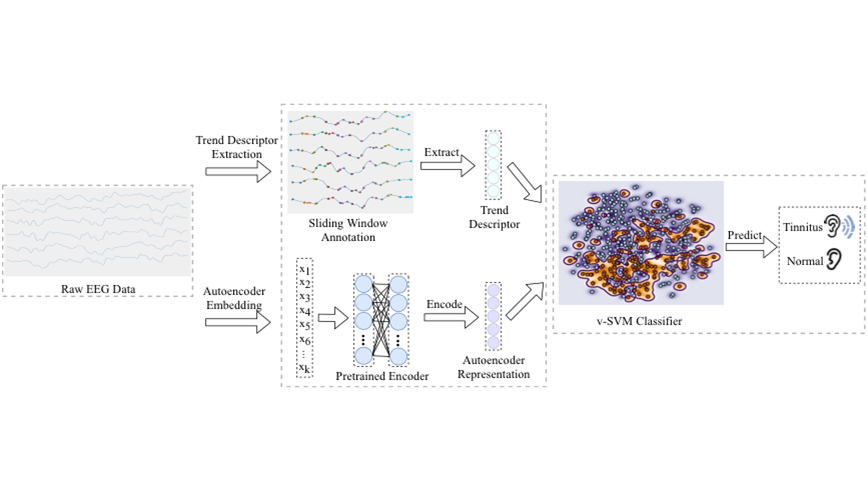Overview
Tinnitus, the unwanted perception of sound in the absence of an external stimulus, is experienced by at least two-thirds of Australians during their lifetimes (Esmaili & Renton, 2018). Despite its common occurrence, no clinical tests currently exist that can provide reliable and objective assessment of its existence or severity. As most instances of tinnitus are “subjective” i.e. are only audible to the patient themselves, clinicians must therefore rely on individuals self-reporting to either identify the underlying disease or evaluate how successfully a treatment program diminishes the percept.
Supported by the British Tinnitus Association, this two-year research project – led by Professor David McAlpine, Academic Director of Macquarie University Hearing, with a team including: Dr Jason Mikiel-Hunter, Postdoctoral Researcher at Macquarie University; Dr Jessica Monaghan, Senior Research Scientist at National Acoustic Laboratories and Dr Lina Yao, Scientia Associate Professor at School of Computer Science and Engineering, UNSW– aims to develop an “objective measure” for identifying people suffering from tinnitus i.e. a way of testing whether people experience ringing or buzzing when no external sound is present that does not rely on self-reporting.
Using artificial intelligence to determine whether a person has tinnitus or not from their brain wave recordings, this approach will not only be explored for its clinical merits as a tinnitus diagnosis tool but will also be used to investigate the causes of tinnitus, including where changes in the inner ear and hearing brain might be occurring. Findings from the study may therefore have the potential to guide new treatment options for people with tinnitus.
Specific Aims:
- To develop a method of distinguishing at the individual level those who report a perception of tinnitus from those who do not, based on a clinical measure of hearing function, the auditory brainstem response (ABR).
- Determine potential neural mechanisms underlying tinnitus.





